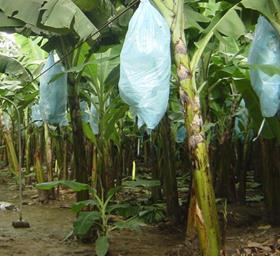
Philippine banana industry players from the Davao region have called on the federal government to address issues affecting the industry's ability to maintain its position in the international market, reports the Philippine News Agency (PNA).
Stephen Antig, executive director of the Pilipino Banana Growers and Exporters Association (PBGEA), voiced concerns that the state of the banana industry is 'getting serious'.
Antig said key players will be submitting a list of issues and concerns for the government to address in order to protect the sector.
CitingDole Asia Holdings president and chief executive officer David Delorenzo'sstate-of-the-industry report during last week’s Banana Conference in Davao City, Antig said exportcompetition is no longer between companies, but countries, so requires government intervention.
The government must organise a trade initiative to reduce Philippine banana export duties in Japan and Korea, Delorenzo said.'It is the most important single barrier for the Philippines,' he said.
Antig said that during that conference, the PBGEA was once again invited by the government's agriculture department to come up with an industry roadmap, highlighting the sector's priorities.
Antig said that the banana sector has already submitted several related documents, but would again comply 'because this matter is of utmost importance”.
'We are hoping that government will act on our concerns this time,' Antig said.
Delorenzo said this roadmap must be submitted to keep bananas at the top of the trade list, and not fall to the bottom which has happened in the past.
With the Duterte administration, Delorenzo told industry players they have the first opportunity ever to get tariffs eliminated.
President Duterte, he said, has already voiced agreement and support for the banana sector, but “we have to keep this issue up front and centre because there are lots of associations who would lobby to put their products ahead of bananas”.
Antig said the PBGEA is working on it, urging the government to help them achieve a reduction of import duties, if a zero tariff is not feasible.
'Getting the tariffs and duties reduced is not easy, that's why we need to support the government even if we have two knowledgeable and powerful advocates, President Duterte and Trade Secretary Ramon Lopez,' he said.
He added industry players are hoping the government inks a bilateral agreement between Japan, Korea and the Philippines, otherwise the banana industry will just be part of its regular trade mission.
Based on Delorenzo presentation, Antig said the Philippines is the world's second largest producer of bananas behind Ecuador, but its exports have been dropping dramatically in the last five to six years, and it is losing 50m boxes annually, which is a big blow to the economy in Mindanao.
'We have to recover a big loss of market share in the Asian market for Philippine banana. We have to gain that back and we need the support of the government as we are competing with Latin American countries where their government is very supportive of the industry,' Delorenzo said.
“Latin America has already negotiated the reduction of trade tariffs in Korea. The Philippines will lose the Korean market if our trade negotiators are not be able to match what Central America achieved,” he added.
Central Americareached an agreement with Korea to reduce their duties to zero over three years. This contrasts with the 30 per cent tariff Philippine exporters must pay in Korea.
'If we do nothing, it is inevitable that we will completely lose the Korean market,' Delorenzo said.
Antig said they need to put their acts together as an industry to preserve the 345,000 jobs directly dependent on the banana sector, and a million others on indirect employment.



